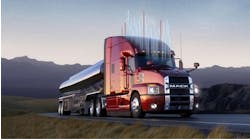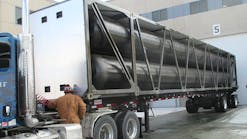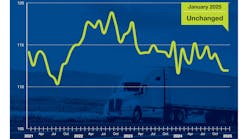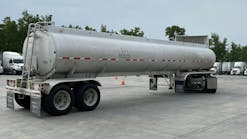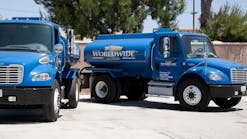Advocacy committee members were about to discuss their position on the Guaranteeing Overtime for Truckers Act (H.R. 7517), which seeks to amend the Fair Labor Standards Act of 1938 to remove the overtime wages exemption for truck drivers, when Carbon Express owner Steve Rush—a former truck driver and the 2010-11 National Tank Truck Carriers chairman—walked into the room in time to make a passionate plea for treating drivers with the respect and dignity all professionals deserve.
“We’ve got to get our head out of the sand,” he said. “We really, truly do. I get so sick and tired of reading articles about, ‘it’s not pay.’ What the [heck] does anybody go to work for? To get paid. That’s all they want. Truck drivers are not any different from lawyers, doctors, or any other professional people. You’re going to find time stealers in every walk of life. Why does it always have to be the driver who’s stealing your time? Why is he the one who has to be motivated?
“If you ever drove a truck for a living, you’d find out that is the motivation. They predominantly love to drive a truck. That’s why I drove one for so long. I loved it. And then this industry went to hell in a handbasket, with all kinds of smoke-and-mirror ways to pay them, because they’re ‘not motivated.’ They just drive a truck for a living. “[Now] look what we’ve done to ourselves. Look what we’ve done to them.”
He didn’t stop there. In fact, the resulting conversation took up most of the committee’s time in San Diego. But we don’t have space to cover it all—and this is a sufficient starting point.
The committee’s early consensus was the bill won’t fix shipper detention times, the issue targeted on Capitol Hill, and could have unintended consequences, including eliminating percentage pay, paying drivers to sleep, and increasing litigation. And, as immediate past chairman Rob Sandlin said, when it comes to driver compensation, he’d rather let the market dictate terms.
I agree. I also don’t believe better pay is all drivers seek—at least in this sector.
According to OSHA, the median salary for tractor-trailer drivers was $48,310 in 2021. But bulk/tank drivers paid by the mile or percentage averaged more than $70,000 last year, according to Cottingham & Butler’s annual survey, and wages continue to climb. ATA’s Bob Costello said in April that average weekly earnings in the “long-distance specialized freight truckload” segment had jumped 21.5% from 2021, and “this is not sustainable.” And while headcounts are up in “for-hire, specialized long-haul trucking” and “for-hire, specialized local trucking,” they’re still not back to pre-pandemic levels.
So, if not pay, what do drivers want? Flexibility, home time, and benefits are key considerations. Heniff Transportation lets drivers choose between percentage and per-mile pay, Caledonia Haulers is pursuing regional growth over national expansion, and many carriers are diversifying medical plans. But, as one attendee noted, the industry still needs “novel approaches” to solving the driver dilemma. Putting long-haul truckers in hotels, like Carbon Express, falls into that category. So do the new DOL-approved registered tank truck apprenticeship program (pg. 28) and FMCSA’s Safe Driver Apprenticeship Pilot.
What about clearer ways of communicating compensation to drivers, without the “smoke and mirrors?” Some carriers already rate by the hour with shippers. Why can’t hourly or salary pay work for more drivers? Communication also is key to spreading the word about industry opportunities. Along those lines, NTTC is pursuing a branding initiative, and recently hired a new marketing and communications associate.
Maybe it’s time to start inviting reporters to speak with folks like Highway Transport’s Thomas Frain. PR firms routinely offer me “expert” interviewees. Why not drivers? It seems mainstream media only talk to disillusioned owner-operators stuck in endless lines at California ports. Frain tells a different story. Until I talked to him, I thought bulk haulers had the toughest job. He says otherwise (pg. 40). While he’s at it, maybe he can educate the public on the differences between owner-operators and company drivers—and how to know which is right for prospective newbies.
Marketing and education will be critical because the driver shortage isn’t ending. Costello warned of a falling U.S. working age population and Elon Musk recently predicted “population collapse.” So tank truck carriers must come together to test new strategies and tell stories that pique interest. And sometimes that starts with a contentious conversation sparked by a person with passion—someone a lot like Rush.
